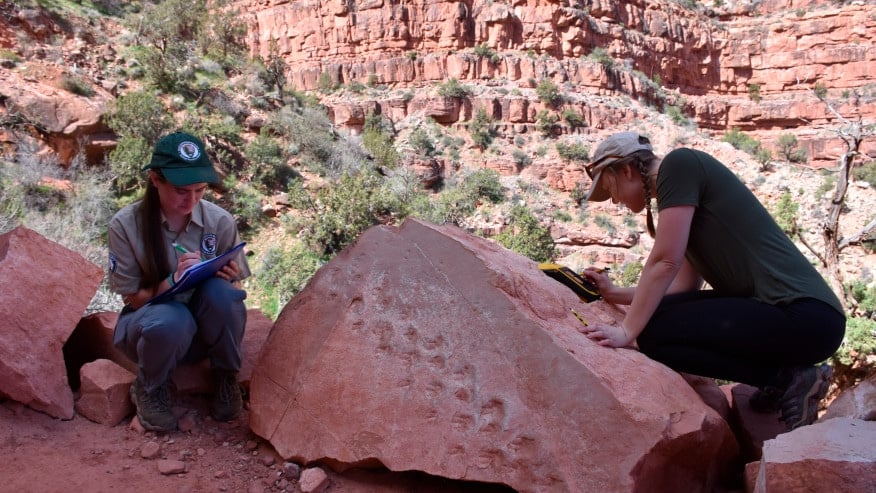
Boulder falls at Grand Canyon and reveals prehistoric reptile footprints
A geologist hiking in the Grand Canyon in 2016 noticed a fallen boulder lying alongside the Bright Angel Trail embedded with markings that resembled footprints. The discovery turned out to be ancient fossilized footprints, the Smithsonian reports, and just recently those footprints were estimated to be about 313 million years old—the oldest vertebrate fossil tracks ever found in Grand Canyon National Park.
“These are by far the oldest vertebrate tracks in Grand Canyon, which is known for its abundant fossil tracks, Stephen Rowland, a University of Nevada, Las Vegas paleontologist told the magazine. “They are among the oldest tracks on Earth of shelled-egg laying animals, such as reptiles, and the earliest evidence of vertebrate animals walking in sand dunes.”
Nun runs marathon on treadmill, raises more than $100,000
A nun on Chicago’s West Side ran a treadmill marathon on Sunday, August 23, to raise money for the Mission’s community outreach, Runner’s World reports. Sister Stephanie Baliga, 32, completed the 26.2 miles in 3:33 and raised nearly $105,000 in the process.
The event was broadcast on Zoom and Deena Kastor, American record holder in the marathon, made a special appearance during the final mile. “I meant to cheer her on during her last mile of her treadmill marathon,” Kastor told Runner’s World. “Instead I felt refreshed and inspired by her, her energy, her purpose, and her compassion.”
Are you exercising less during the pandemic? It’s probably impacting your mental health
A recent study conducted by Cambridge Open Engage found that people who reported exercising less during the coronavirus also reported a decline in their mental health. The study collected self-reported data from more than 3,000 staff, faculty, students and alumni of Iowa State University located across the country. Results showed that those who previously exercised the recommended amount of physical activity each week, but no longer did so during isolation due to the pandemic, reported worse mental health.
Participants reported that their screen time and sitting time increased by 20 to 30 percent on average, too. “These preliminary findings suggest that increasing efforts to maintain physical activity and limit screen time should be put in place, while also recognizing the potential short- and long-term mental health effects of COVID at the population level,” the study’s author, Jacob Meyer, said.







